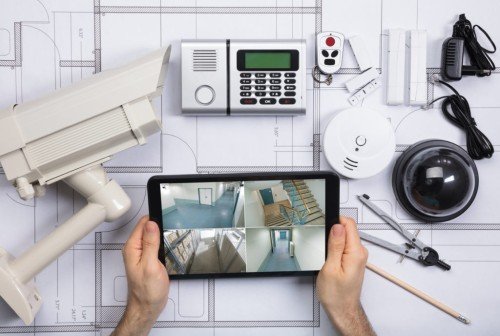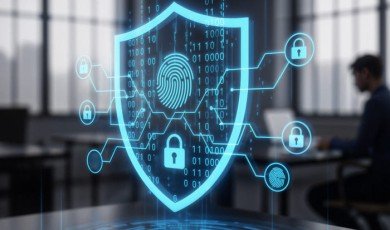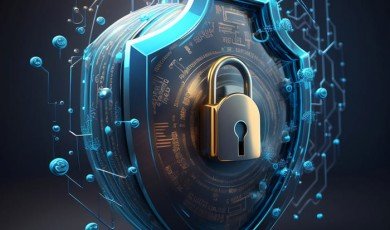
In today's digital age, security is a top priority for businesses, especially in a business center where many companies share a common space. In order to keep your business safe, it's important to stay up-to-date with the latest technologies and security agencies that can help protect your business.
In this blog post, we will discuss some of the latest technologies and security agencies that can help keep you safe in a business center.
1.Access Control Systems
Access control systems are one of the most effective ways to keep your business safe. These systems allow you to control who has access to your building or certain areas within your building. Access control systems can range from simple key card readers to more advanced biometric systems that require fingerprints or retinal scans.
One of the benefits of access control systems is that they allow you to track who is coming and going from your building, which can be useful in the event of a security breach. Additionally, access control systems can be integrated with other security systems, such as CCTV cameras and alarms, to create a comprehensive security solution.
2.CCTV Cameras
CCTV cameras are another effective way to keep your business safe. These cameras can be installed both inside and outside your building and can be monitored in real-time or recorded for later viewing.
CCTV cameras not only act as a deterrent to potential intruders, but they can also provide valuable evidence in the event of a security breach. Additionally, CCTV cameras can be integrated with other security systems, such as access control systems and alarms, to create a comprehensive security solution.
CCTV cameras, also known as closed-circuit television cameras, are becoming increasingly common in public spaces, businesses, and even residential homes. These cameras are used for a variety of reasons, including monitoring security, preventing theft, and providing evidence in criminal investigations. In this blog post, we will explore the benefits and drawbacks of using CCTV cameras, their various applications, and the future of CCTV technology.
The Benefits of CCTV Cameras
One of the most significant benefits of CCTV cameras is their ability to deter criminal activity. Criminals are less likely to commit crimes when they know they are being watched, and the presence of CCTV cameras can give people a greater sense of security in public spaces.
CCTV cameras can also provide valuable evidence in criminal investigations. Footage captured by these cameras can be used to identify suspects, track their movements, and provide evidence in court. This can be especially useful in cases where there are no eyewitnesses or other forms of evidence available.
In addition to their security benefits, CCTV cameras can also be used to monitor traffic flow and prevent accidents. By monitoring traffic patterns, CCTV cameras can help identify areas that need traffic calming measures, such as speed bumps or traffic lights. They can also be used to monitor construction sites and other hazardous areas to ensure the safety of workers and pedestrians.
Drawbacks of CCTV Cameras
While CCTV cameras have many benefits, there are also some drawbacks to their use. One of the most significant concerns is the potential invasion of privacy. Some people feel that CCTV cameras infringe on their right to privacy, and they may be uncomfortable with the idea of being constantly watched.
Another concern is the possibility of misuse. CCTV cameras can be used to monitor people without their knowledge or consent, and this could be exploited by individuals with malicious intent. There is also the risk of the footage being hacked or leaked, potentially exposing sensitive information or compromising personal privacy.
Applications of CCTV Cameras
CCTV cameras are used in a wide range of settings, from public spaces to businesses and private residences. In public spaces, they are used to monitor traffic flow, prevent crime, and provide evidence in criminal investigations. They are also commonly used in shopping centers, banks, and other businesses to deter theft and monitor employee behavior.
In residential settings, CCTV cameras can be used to monitor the safety of children, pets, and elderly relatives. They can also be used to deter burglars and other criminals from targeting the property.
The Future of CCTV Technology
As technology continues to advance, the capabilities of CCTV cameras are also evolving. One of the most significant developments in recent years has been the use of artificial intelligence (AI) and machine learning algorithms to analyze footage and detect potential security threats.
Another emerging trend is the use of thermal cameras to detect temperature changes, which can be used to identify potential security threats or health risks. This technology has become increasingly important during the COVID-19 pandemic, as thermal cameras have been used to screen individuals for symptoms of the virus.
3.Alarms
Alarms are a key component of any security system. Alarms can be used to detect intruders, fire, or other emergencies and can alert you and the relevant authorities to the situation.
Modern alarm systems can be integrated with other security systems, such as CCTV cameras and access control systems, to create a comprehensive security solution. Additionally, many alarm systems are now smart, meaning they can be controlled and monitored remotely via a smartphone app.
4.Security Personnel
Security personnel can provide an additional layer of protection for your business. Security personnel can be stationed at the entrance to your building or patrolling the premises to deter potential intruders.
In addition to their physical presence, security personnel can also provide valuable intelligence and assist with incident management in the event of a security breach.
5.Cybersecurity
Cybersecurity is becoming increasingly important as more and more business is conducted online. Cybersecurity measures can include firewalls, antivirus software, and data encryption to protect your business from cyber-attacks.
In addition to these measures, it's important to train your employees on good cybersecurity practices, such as using strong passwords and being aware of phishing scams.
6.Security Agencies
There are many security agencies that specialize in providing security services for businesses. These agencies can provide a range of services, including access control, CCTV monitoring, alarm response, and security personnel.
When choosing a security agency, it's important to do your research and choose a reputable agency with a proven track record. Additionally, it's important to work closely with your security agency to develop a comprehensive security solution that meets your business's specific needs.
7.Emergency Response Plans
No matter how many security measures you have in place, emergencies can still happen. That's why it's important to have a comprehensive emergency response plan in place.
An emergency response plan should include procedures for responding to a range of emergencies, such as fire, flood, or security breaches. The plan should also include contact information for relevant authorities and details on how to evacuate the building safely.
In conclusion, keeping your business safe in a business center requires a comprehensive security solution that combines the latest technologies and security agencies. By implementing access control systems, CCTV cameras, alarms, cybersecurity measures, security personnel








